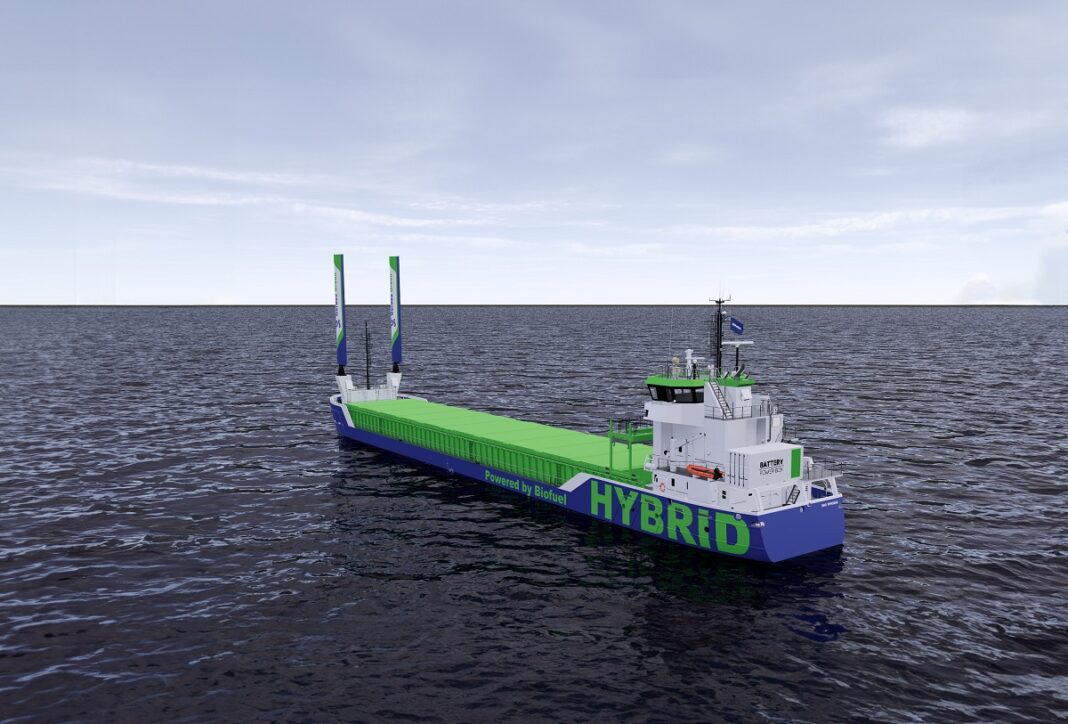In early September Damen Shipyards Group signed a contract with Gerdes Green for a second Combi Freighter (CF) 3850. Like the first vessel, which Damen is currently building, the latest order will feature a wide range of innovative solutions aimed at optimising efficiency and advancing the vessel’s sustainable performance.
Gerdes Green, a joint venture between Reederei Gerdes and over-C, shares Damen’s commitment to building a green maritime future.
Gerdes Green Managing Partner Nicole Gerdes explains, “Sustainability is a key demand of industry today and is, therefore, of utmost importance to the maritime sector. Beyond that, however, as we witness changes in the climate it is clear that we cannot simply continue as we have; things have to change.”
“At Gerdes Green we don’t want to wait until the solutions of the future have arrived. The vessels we have ordered from Damen form a part of our bid to act now.
“With these ships, we will be able to gain experience with sustainable technologies. The lessons we learn will help us to advance, step-by-step, towards a carbon neutral fleet.”
The Damen CF 3850 is an updated version of a vessel that has earned an excellent reputation in the international cargo vessel sector over many years. The next generation vessel has been redeveloped using computational fluid dynamics (CFD) and modern tooling to ensure utmost efficiency.
Together with Gerdes Green, Damen has developed a battery hybrid version of the CF 3850 vessel. The vessel is able to sail for short durations on fully electric power, reducing emissions when, for example operating in populated areas or approaching port.
Additional green features of the vessel include its ability to hook up to electrical shore power, the capability to sail on reduced emission B100 bio-diesel fuel, and wind assisted ship propulsion.
This comes in the form of Econowind foldable ventofoils, which will reduce the vessel’s dependence on the engine to lower fuel consumption and associated emissions.
Gerdes Green has received a subsidy from the German Government for investment in the sustainable innovations featured on the vessels. The subsidy is part of the Namkü directive, a demonstration of the German Government’s recognition of the importance of maritime sustainability.


